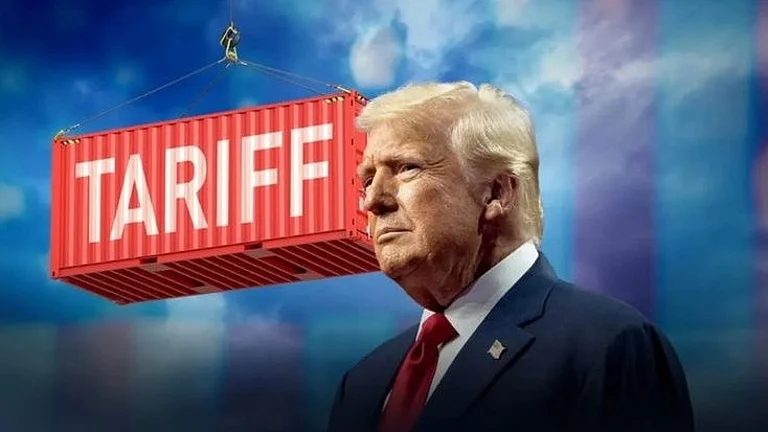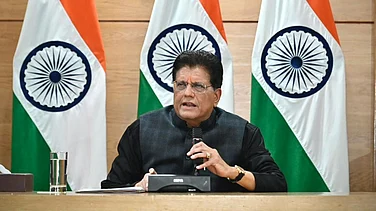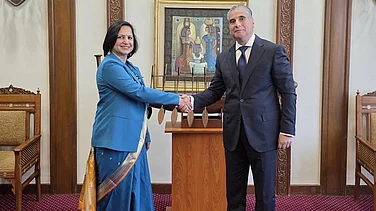Israel has launched Operation Rising Lion on Friday, targeting nuclear facilities, ballistic missile factories and military commanders. It said that this was the start of a prolonged operation to prevent Tehran from building an atomic weapon.
Prime Minister Benjamin Netanyahu called it a targeted military operation to roll back the Iranian threat to Israel's "very survival", adding that the operation will continue for as many days as it takes to remove this threat.
But as the Middle East teeters on the brink, India’s ambitious plan to establish a new trade corridor linking South Asia with the Middle East and Europe is running into troubled waters.
What is IMEC?
India-Middle East-Europe Economic Corridor, or shortly IMEC, was unveiled during the G20 summit in New Delhi two years back, aiming to create a seamless economic artery linking India to Europe via the Middle East. It was said to be a faster, more secure alternative to traditional trade routes. It is expected to bring down logistics costs by up to 30%, reduce transportation time by 40% and create seamless trade linkages across continents.
“We will not only be linking trade; we will be linking civilisations and cultures — from Southeast Asia to the Gulf, from the Middle East to Central Europe,” said commerce and industry minister Piyush Goyal in April.
But the widening conflict in the Middle East poses a significant threat to halt the corridor’s progress, complicating efforts to reduce reliance on chokepoints like the Suez Canal.
Why Israel-Iran Conflict Threatens IMEC
According to Crisil, India relies heavily on the Red Sea–Suez Canal corridor for commerce with Europe, North America, Africa and West Asia–trade worth over $400bn in FY23. Indian exporters have long feared a direct Iran-Israel conflict precisely because it could choke off the Red Sea lifeline, forcing vessels into far longer voyages around Africa—adding more weeks and higher costs to global supply chains.
Even before the June 13 dramatic escalation, New Delhi’s planned IMEC was navigating a minefield of challenges. The project requires significant infrastructure investment — ports, rail links and roadways—across politically sensitive geographies like Saudi Arabia, the UAE, Jordan and Israel. It also requires cooperation. But these foundations seem to be shaken. The war in Gaza late 2023 and its fallout “stalled” progress on IMEC, as per Asia-Pacific Applied Economics Association (APAEA) and served as a reality check on the corridor’s feasibility amid regional strife. It also highlighted that the very countries meant to drive IMEC’s development have struggled to even meet and map out an action plan due to geopolitical distractions. Now, the spectre of a direct Israel–Iran confrontation raises even more severe doubts about the corridor’s timeline and viability.
Middle East Council on Global Affairs already warned in March that IMEC’s proposed rail line through Saudi Arabia and Jordan is vulnerable, citing Security concerns, political disputes and potentially jeopardising IMEC’s long-term success. As of this weekend, those warnings no longer seem hypothetical.
If we look at it from India's perspective, the shifting sands are perilous. New Delhi has always maintained balanced relations with Israel and Iran for years. India refrained from any public criticism of Israel’s actions till now, positioning itself as a neutral player focused on trade and stability.
On Friday, India expressed “deep concern” over the escalating tensions between Iran and Israel, particularly in light of reported attacks on nuclear facilities. The Ministry of External Affairs called on both nations to exercise restraint and refrain from actions that could further destabilise the region.
However, with Israel voicing its support towards India during the Operation Sindoor, New Delhi also might feel the pressure to choose sides if the conflict escalates further, which could complicate its role in the corridor.
“Ongoing Israel-GCC tensions… risk fragmenting regional alignment, and ultimately weaken long-term commitment to the IMEC,” flagged News Lines Institute earlier. But if India is seen as too close to the Israeli-American camp, it might alienate Gulf partners or Iran; too conciliatory toward Tehran, and it may irk Washington or Jerusalem. This tightrope is becoming harder to walk.
Put simply, every actor’s bandwidth and goodwill for the corridor is consumed by immediate security concerns. The US–a key champion and potential financier of IMEC–is now busy containing a possible war while seeming to be maintaining a distance from Israeli strikes. European partners, grappling with an oil shock and fresh conflict on the heels of Ukraine, might be less inclined to bankroll risky Middle East infrastructure in the near term. And regional powers like Saudi Arabia and the UAE, while still invested in their long-term economic diversification (to which IMEC is central), may have to pause and reconsider the corridor’s scope if the strategic map of the Middle East is redrawn by war.


































